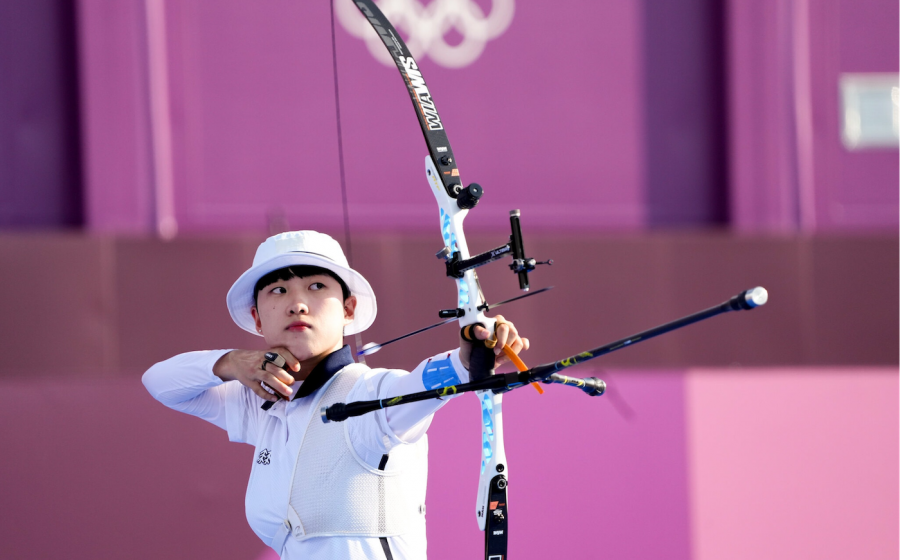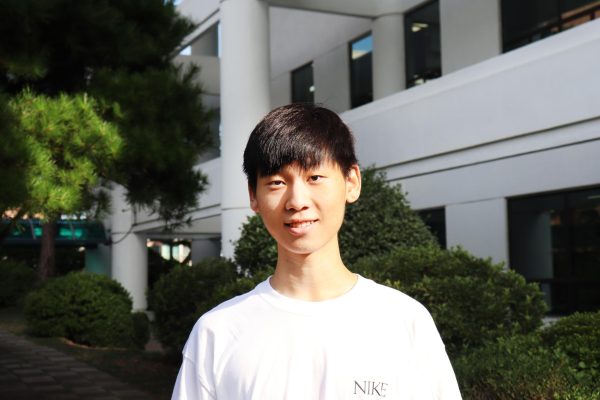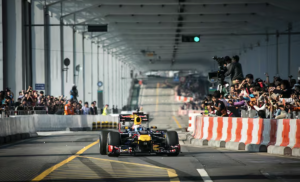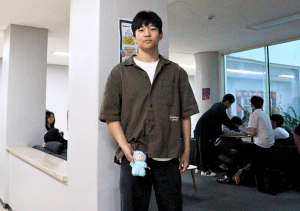Anti-feminists harass Korean archer An San
Sep 12, 2021
Korean archer An San has recently received criticism from Koreans following the 2020 Tokyo Olympics for her alleged support for feminism.
After her triumphant achievement of three gold medals, bringing home the ninth consecutive Olympic gold medal for the Korean women’s archery team, An quickly rose to stardom.
However, the situation took an unexpected turn in late July when she started facing backlash for her feminist attributes across different Korean internet communities including DCinside, FMKorea, and MLBpark.
The assumptions about An San being a feminist started in FMKorea, one of the largest Korean internet communities. Netizens of FMKorea found records of An San using certain Korean terms prevalent in feminism communities, such as OongAngOong and OhJohOhUk, each term denoting the illogicality and preponderance of misogynistic customs respectively. Pointing out An’s short hair, netizens further attempted to back up their claims framing An as a feminist.
“Like a wildfire, the An San feminist rumor, regardless of whether it is true, rapidly spread from FMKorea to other communities – namely, DCInside,” Joon Kim (10), member of multiple online Korean communities, said.
After the rumor spread, internet anti-feminists posted messages of criticism and hatred towards An San. One post read that “An San should have her gold medals revoked due to her feminism.” Another post said “most of the time, short-haired women are feminists. I don’t root for An San because I just loathe feminists in general.”
However, there is no substantial evidence to support this rumor.
“It is absurd that people would make an assumption based on her hair length,” Tim Munro, middle and high school PE teacher, said. “Many female athletes choose to cut their hair short for comfort during rough exercise. Long hair dangling in the wind could cover up archers’ sight of the target and impact their performance.”
The fact that An utilized the aforementioned, common “feminist” terms does not necessarily indicate that An San is a feminist. For example, the allegedly “feminist” term that she posted in her Instagram story, OhJohOhUk, is prevalent among Korean feminism communities but K-pop fans use the term to support their favorite group too.
“In addition, even if she is a feminist, there is nothing wrong with that,” Sophie Choi (10), student feminist, said. “She doesn’t deserve the backlash she is receiving due to the accusation of her being a feminist. It’s unfortunate that her great achievement for the country is being overlooked.”
Some feminists maintain that hatred towards An originates from the negative perception of feminism in Korea.
“In Korea, feminism is often viewed with disdain,” Sophie said. “I think this perception is influenced by radical feminists, who advocate for female superiority. However, feminism is the practice of gender equality, not superiority.”
Supporters of An San, indignant that she is subject to social stigma, are making efforts to protect her from internet criticism. For instance, the newly-established “Protect An San” campaign focuses on gathering information on those who crossed the line with their criticism to pursue legal action for defamation.
But some supporters of An San admit that the issue is somewhat exaggerated.
“There indeed were people irrationally hating on An San behind their computer screens,” Joon said. “However, I think the press and public are overreacting, as if a great number of people are actively criticizing her. For example, some press claimed that anti-feminists were attempting to remove An San’s gold medals by calling and demanding the Korea Archery Association (KAA). However, according to Nate News, the KAA does not seem to be receiving any calls of the sort.”
Meanwhile, some gender study experts claim that criticism towards An San is merely the tip of the iceberg of bigger gender issues in the realm of sports.
According to sports journalist Travis Scheadler, female athletes do not receive the wide media coverage that men do, unless they take part in “feminine sports” such as gymnastics and figure skating. Media also tend to devalue women’s athletic accomplishments and rather focus on physical appearance.
Because of a polarized spectrum of viewpoints in feminism, the An controversy poured oil to the sizzling fire of gender-related disputes, further shedding light on the underlying problem of gender inequality. For centuries, women’s accomplishments in sports have been undermined by the status enforced by their gender. The Olympics this year were no different.







